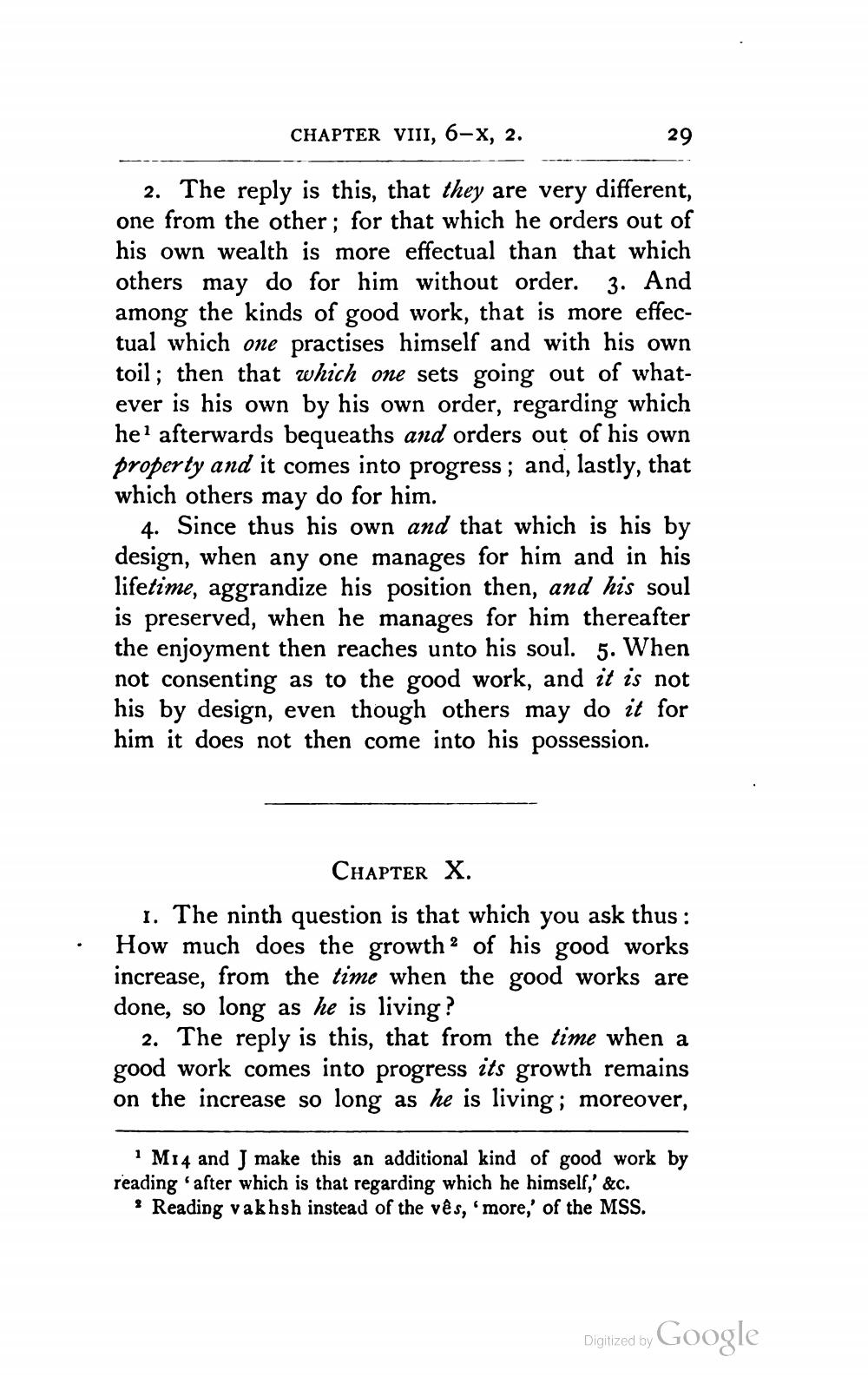________________
CHAPTER VIII, 6-X, 2.
29
2. The reply is this, that they are very different, one from the other; for that which he orders out of his own wealth is more effectual than that which others may do for him without order. 3. And among the kinds of good work, that is more effectual which one practises himself and with his own toil; then that which one sets going out of whatever is his own by his own order, regarding which hel afterwards bequeaths and orders out of his own property and it comes into progress; and, lastly, that which others may do for him.
4. Since thus his own and that which is his by design, when any one manages for him and in his lifetime, aggrandize his position then, and his soul is preserved, when he manages for him thereafter the enjoyment then reaches unto his soul. 5. When not consenting as to the good work, and it is not his by design, even though others may do it for him it does not then come into his possession.
Chapter X. 1. The ninth question is that which you ask thus : How much does the growth of his good works increase, from the time when the good works are done, so long as he is living ?
2. The reply is this, that from the time when a good work comes into progress its growth remains on the increase so long as he is living; moreover,
1 M14 and J make this an additional kind of good work by reading "after which is that regarding which he himself,' &c.
. Reading vakhsh instead of the vês, 'more,' of the MSS.
Digitized by Google




